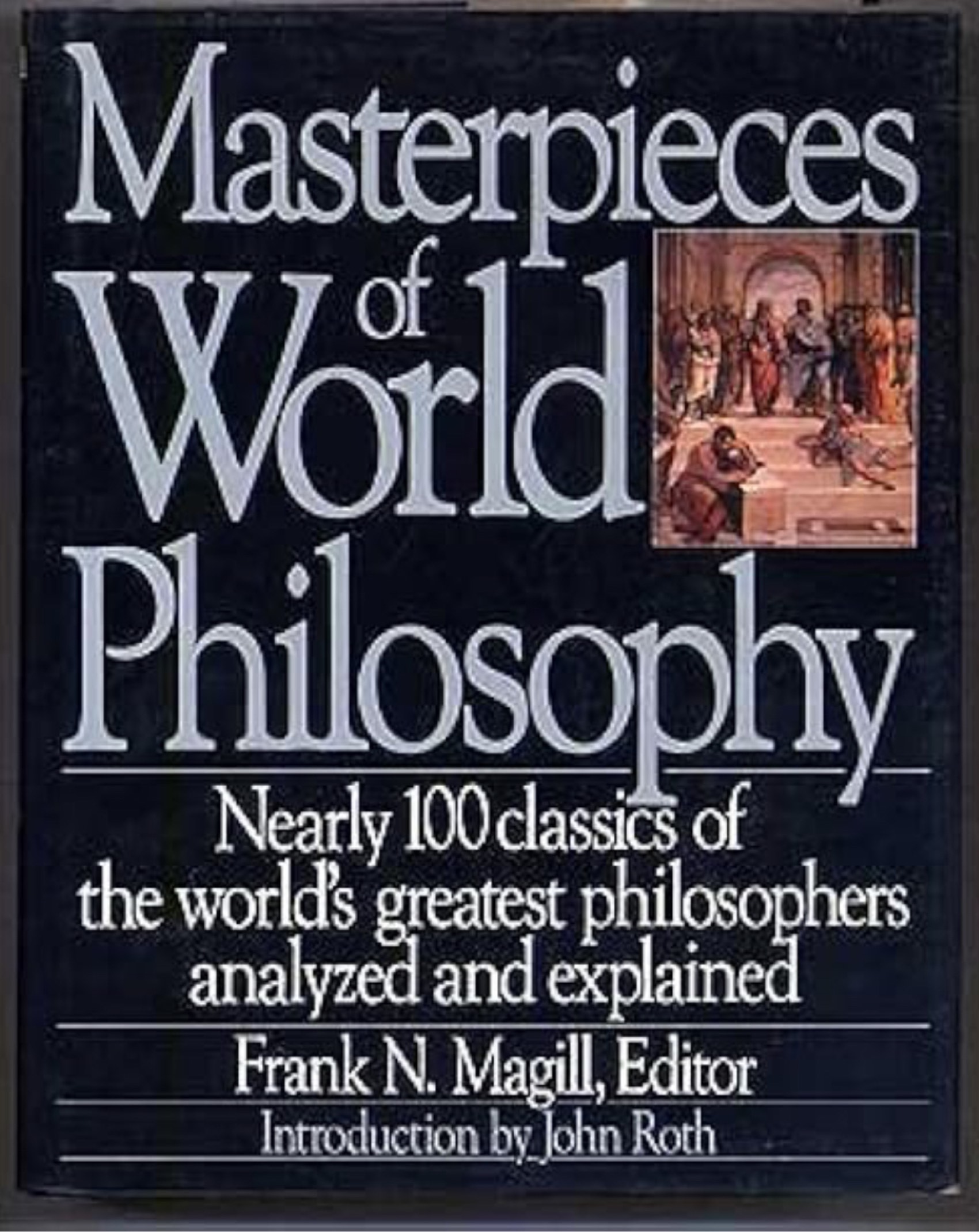MASTERPIECES OF WORLD PHILOSOPHY
“Masterpieces of World Philosophy,” edited by Frank Magill and John K. Roth, is an extensive collection that distills nearly a hundred influential philosophical works into critical essays. These essays aim to make complex philosophical ideas more accessible, covering the themes and major points of each work, along with the historical context and the life details of its authors. The book, first published in 1961, provides a comprehensive overview of the development of philosophical thought from ancient times to the modern era.
This compilation is not just a summary of philosophical works but also includes critiques and alternative perspectives, accompanied by reading lists for those interested in further exploration. It serves as an excellent reference tool for both students and general readers looking to grasp the fundamental ideas that have shaped philosophical discourse through the ages.
The provided text is a compilation of excerpts discussing various philosophical works and ideas from different philosophers throughout history. Key themes include:
1. Philosophical Structure: The text emphasizes the importance of understanding philosophical arguments similarly to literary plots, focusing on the development of ideas and the characters represented by these ideas.
2. Confucian Thought: Confucius' views on Heaven's Will and the significance of filial piety are explored, highlighting the complexity of his teachings and the evolution of Confucian ideals over time.
3. Bhagavad Gita: The Gita's narrative context is presented, illustrating the moral dilemmas faced by Arjuna and the teachings of Krishna regarding duty, sacrifice, and devotion to God.
4. Socratic Dialogues: The dialogues of Plato, particularly the Euthyphro, Apology, Crito, and Phaedo, are examined, showcasing Socrates' quest for truth and the philosophical exploration of ethics, justice, and the nature of the soul.
5. Existentialism and Freedom: The works of Kierkegaard and Sartre are discussed, emphasizing the individual's struggle for authenticity and the burden of freedom, where each person must confront their existence and choices.
6. Utilitarianism: The principles of utilitarianism as articulated by Bentham and Mill are analyzed, addressing the relationship between happiness, morality, and the role of individual versus collective interests.
7. Nietzsche's Philosophy: Nietzsche's ideas on the death of God, the will to power, and the concept of eternal recurrence are presented, reflecting on the implications of these ideas for individual existence and morality.
8. Phenomenology and Perception: Merleau-Ponty's work on perception is critiqued, focusing on the relationship between the body and consciousness, and the nature of human existence.
9. Camus and the Absurd: Camus' exploration of nihilism and the human condition is highlighted, particularly through the metaphor of Sisyphus, representing the struggle against meaninglessness.
Overall, the text serves as a rich tapestry of philosophical thought, illustrating the evolution of ideas and the ongoing quest for understanding human existence, morality, and the nature of reality.
